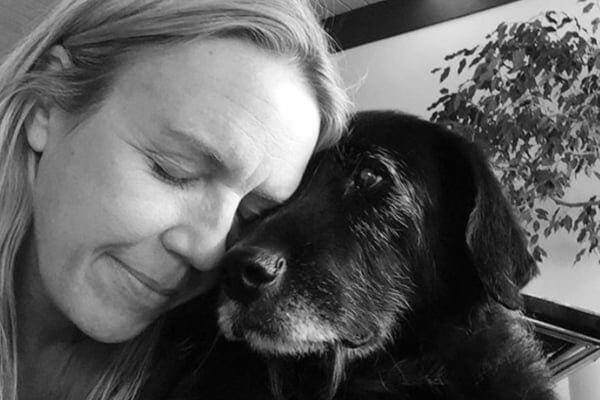If your older dog is bleeding from her private area, it’s crucial to seek immediate veterinary attention. This could be a sign of a serious health issue that needs prompt medical treatment.
As a pet owner, you may come across situations where your older dog experiences health problems. One common and concerning issue is when your older dog is bleeding from her private area. This can be distressing and alarming, and as a responsible pet owner, it’s essential to take quick action.
Bleeding from the private area could indicate an underlying health problem, potentially a urinary tract infection, trauma, or reproductive system issue. In some cases, it may even be a symptom of a more severe condition. It’s essential to recognize the urgency of the situation and seek prompt veterinary care to ensure the well-being of your beloved pet.
Recognizing The Signs
Recognizing the Signs: It’s important to be aware of any unusual discharge or bleeding from your older dog’s private area. Additionally, pay attention to any behavioral changes such as restlessness or agitation. Furthermore, monitor their frequency and urgency to urinate as any sudden increase may indicate a problem. Moreover, watch out for signs of lethargy or depression which could be a red flag for an underlying issue. Finally, note any significant change in appetite or water consumption as it may be linked to the bleeding.
Common Causes Explained
Urinary tract infections (UTIs): UTIs can cause inflammation and bleeding in the urinary tract, leading to discomfort and distress for older dogs.
Vaginitis in senior dogs: Vaginitis, a common condition in older female dogs, can lead to bleeding and discharge from the private area.
Canine reproductive system tumors: Tumors in the reproductive system can cause abnormal bleeding and should be evaluated by a veterinarian.
Uterine infections like pyometra: Pyometra, a serious infection of the uterus, can cause bleeding, lethargy, and a loss of appetite in older dogs.
Trauma or injury to the genital area: Accidental trauma or injury to the genital area can cause bleeding and should be assessed by a vet immediately.
When To Seek Veterinary Help
It is vital to seek veterinary help if your older dog is bleeding from her private area. Look out for blood in urine or excessively licking. Additionally, if you notice a pungent odor or discolored discharge, it’s essential to consult a vet. Visible discomfort or pain should also prompt a visit to the veterinarian. Furthermore, a swollen abdomen or visible masses should not be ignored. Finally, if there is protracted bleeding with no improvement, it is crucial to seek professional help immediately.

Credit: toegrips.com
Initial Assessment By A Vet
Sure, I understand your requirement. Here’s the HTML format for the content: “`htmlWhen experiencing a situation where an older dog is bleeding from her private area, the initial assessment by a vet is crucial. The assessment typically involves a physical examination to identify any visible issues or abnormalities in the affected area. Furthermore, the vet will conduct a review of the dog’s recent health history to determine if there have been any recent illnesses or changes in behavior. This is followed by a thorough discussion about the dog’s symptoms, including the duration and severity of the bleeding, any accompanying discomfort, and other relevant details that can help in the assessment.
“` I hope this meets your requirements. Let me know if you need any further help.Diagnostic Tests Overview
When a you notice your older dog is bleeding from her private area, the veterinarian may recommend specific diagnostic tests to determine the cause. Complete blood count (CBC) can provide essential information about your dog’s overall health, including potential infections or blood disorders. Urinalysis can help identify any urinary tract issues or infections that could be contributing to the bleeding. Additionally, ultrasound or x-rays may be used to visualize any abnormalities in the reproductive organs or urinary system. In some cases, biopsies or cytology may be necessary to obtain a definitive diagnosis.
Possible Treatments
If your older dog is bleeding from her private area, it is important to consider possible treatments. Antibiotics may be prescribed to address any infections, while surgery could be necessary in cases of tumors or severe conditions. Providing supportive care and administering medication may also help manage the issue. Depending on the situation, hormonal treatments could be applicable to address any underlying hormonal imbalances. Regular veterinary check-ups are crucial to monitor your dog’s progress and adjust the treatment plan as needed.
Quick First Aid Steps
If your older dog is bleeding from her private area, it’s important to take quick first aid steps to address the situation. Start by keeping the area clean to prevent any further complications and infections. Limited activity is advised to prevent aggravation of the condition. Be sure to administer any prescribed medications properly and seek immediate veterinary care. Remember to stay calm and provide your dog with comfort during this distressing time.
Long-term Care Strategies
Managing long-term care for an older dog experiencing bleeding from her private area requires special attention and care. Special dietary needs should be addressed, ensuring that the dog’s diet is tailored to support her health condition. Additionally, utilizing incontinence products designed for dogs can help manage the bleeding and maintain cleanliness. Routine vet check-ups are essential for monitoring the dog’s condition and adjusting the care plan as needed. By incorporating these strategies into the dog’s care routine, it’s possible to provide the necessary support for her long-term well-being.
Maintaining Urogenital Health
Regular grooming and hygiene are essential for senior dogs, especially to monitor for any signs of bleeding from the private area. Ensure your pet has access to fresh, clean water at all times to support their urinary system. Additionally, a high-quality diet for senior dogs can promote overall health, including urogenital wellness. Proper nutrition can also help manage underlying health conditions that may cause bleeding. If you notice any concerning symptoms, seek veterinary care promptly to address the issue and determine the appropriate course of action.
Monitoring For Recurrence
Monitoring for Recurrence: It’s crucial to carefully observe any abnormal bleeding from your older dog’s private area, as it could indicate a recurrence of a previous condition. By understanding the signs of the previous illness, you can be vigilant in spotting any potential red flags. Additionally, scheduling routine check-ups with the vet is essential to monitor your dog’s health and catch any concerning developments early on. Immediate care may be necessary if you notice excessive or persistent bleeding, as this could indicate a serious issue that needs urgent attention.
Frequently Asked Questions Of My Older Dog Is Bleeding From Her Private Area
What Are The Common Causes Of Bleeding In Older Dogs?
Older dogs can experience bleeding from their private area due to conditions such as urinary tract infections, tumors, or hormonal imbalances. It is important to consult a veterinarian for a proper diagnosis and treatment plan.
How Can I Provide Immediate Care For My Bleeding Older Dog?
If your older dog is bleeding from their private area, gently clean the area with a mild antiseptic solution and apply a clean, soft cloth to control the bleeding. Contact a veterinarian immediately for further guidance and medical attention.
When Should I Be Concerned About My Older Dog’s Bleeding?
If your older dog experiences prolonged or heavy bleeding from their private area, along with symptoms such as lethargy or loss of appetite, it is crucial to seek veterinary care promptly. Timely evaluation and treatment can help identify and address any underlying health issues.
Conclusion
In caring for your older dog, it’s crucial to address any signs of bleeding promptly. Consult your veterinarian for a proper diagnosis and treatment. Be observant of any changes in behavior or symptoms of distress in your furry companion. Remember, early intervention can make a significant difference in your pet’s well-being.



